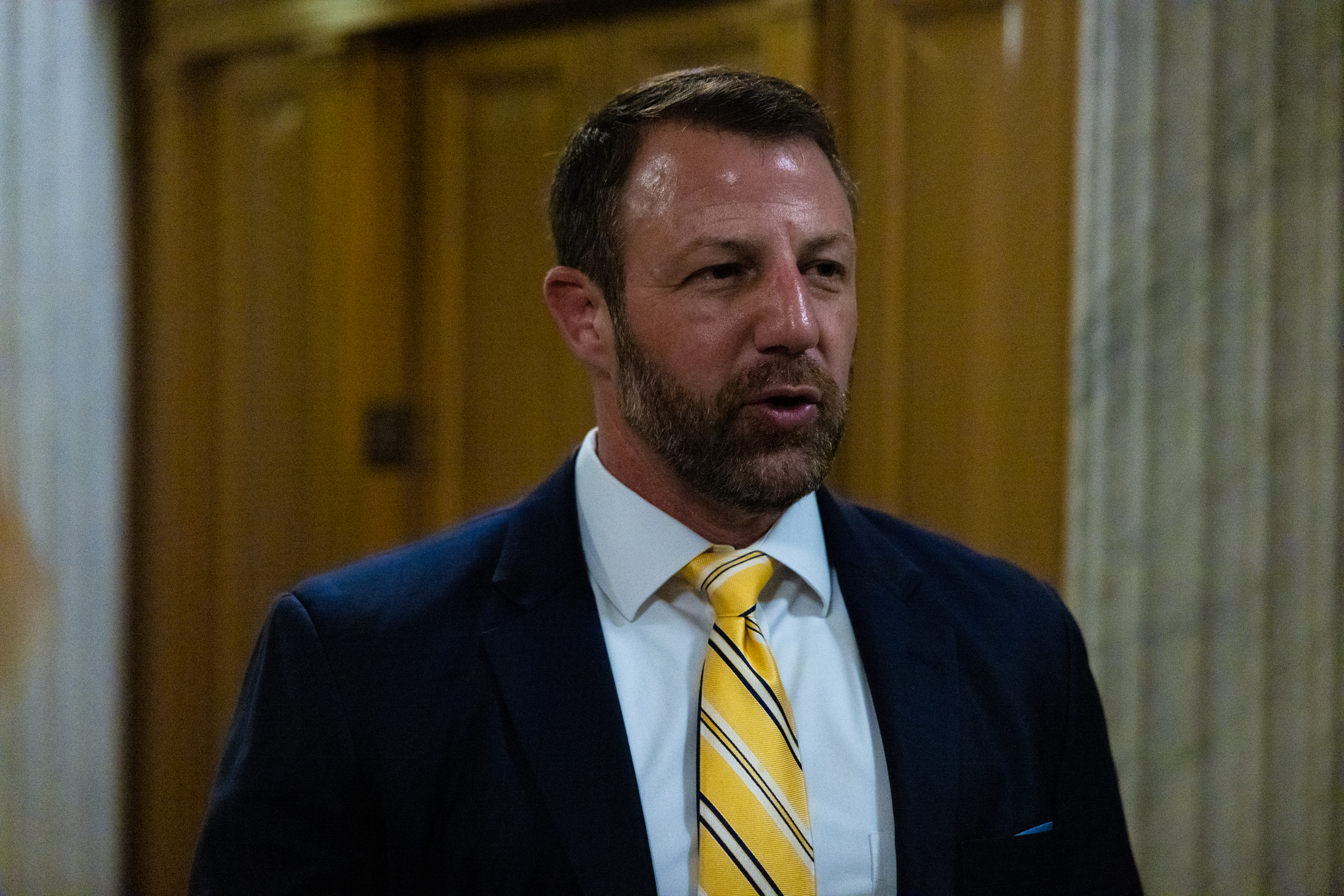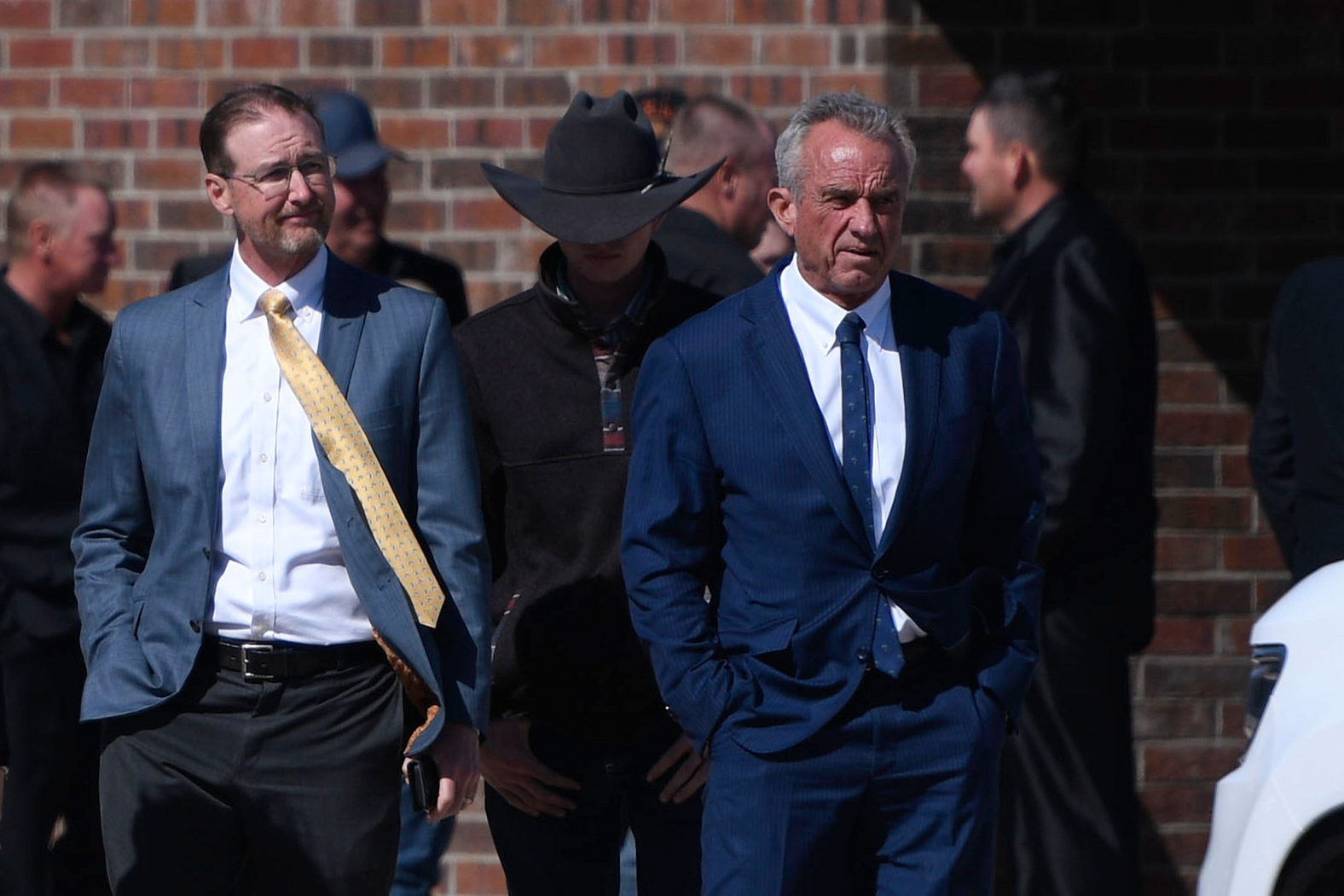Donald Trump's attacks on Senate Majority Leader Mitch McConnell come at the worst possible time, if the president's goal is actually to accomplish the agenda on health care, infrastructure and taxes he's goading his GOP ally to pass.
Congress, now on its August recess, will return to confront a brutal September workload including two absolute must-do items: funding the government to head off a shutdown, and raising the federal borrowing limit to avert a potentially catastrophic first-ever default on U.S. obligations.
Both will require bipartisan cooperation, something that's been in short supply on Capitol Hill this year. And that's all apart from the legislation Trump wants to see, including a rewrite of the tax code to lower rates, a sweeping infrastructure bill, and renewed efforts to repeal Barack Obama's Affordable Care Act after McConnell tried and failed last month — an outcome Trump called "a disgrace."
So the president's rhetoric this past week has fueled divisions at a moment when his party should be working together toward shared goals, not tearing each other apart. And his agenda only can pass if McConnell navigates it through the Senate, something the veteran lawmaker may not feel more motivated to do with his president working against him instead of for him.
"Virtually any substantial goals that the president intends to achieve, whether it's tax reform or more infrastructure, requires the active assistance of the Senate majority leader," said Michael Steel, who served as spokesman to John Boehner when the Ohio Republican was House speaker.
McConnell allies say that Trump's frustration over the failure on health care is shared by the majority leader. And campaign operatives on the political side say it's crucial that the next item on the agenda — overhauling the tax code — not collapse in a similar fashion. Otherwise Republicans will have a tough time making the case to voters during next year's midterms that they should continue to control both chambers of Congress and the White House.
"Tax reform is a must-do issue in our view," Steven Law, head of the McConnell-aligned super PAC Senate Leadership Fund, said Friday in an interview for C-SPAN's "Newsmakers" program. "I think if we fail to get action on that, I think people will start to wonder why Republicans are in charge of everything and what they're accomplishing."
U.S. & World
Yet instead of linking arms with McConnell on the issue and working Capitol Hill, like Republican President George W. Bush did when he got his big tax cuts through in 2001, the White House may already be at cross-purposes with the majority leader.
The president's team has raised expectations for fast action on taxes, with White House legislative director Marc Short recently suggesting a bill could be completed by the end of the year. That's a tall order for Republicans who have yet to meet a single major legislative deadline. At the same time, Congress has made virtually no progress on infrastructure or the budget, with the unfinished work piling up.
And unlike health care, the upcoming agenda — outside of tax reform and Trump nominations — requires Democratic votes. That's sure to be another sore point between Trump and McConnell, since Trump wants the Senate to eliminate the filibuster. McConnell, along with most Senate veterans, are resolutely opposed.
McConnell dinged Trump this week for "excessive expectations" about what can happen in Congress, which didn't sit well with the president, who lashed out against the majority leader.
Even as Senate Republicans rushed to the majority leader's defense Friday following Trump's attacks, McConnell's allies tried to soothe the waters, with some noting that McConnell, while repeatedly expressing his displeasure with Trump's tweeting habits, has nonetheless proceeded forward despite them.
"The most important thing Leader McConnell said this week is that this Congress will be judged in its totality, not in a snapshot, which is exactly right," said Brian McGuire, McConnell's former chief of staff. "He and the president share a common set of legislative goals, and there's no reason whatsoever to believe those shared goals won't continue to be a unifying force in the months and years ahead."
A top priority for Trump is U.S. taxpayer money for a wall along the Mexico border despite his repeated campaign promises that Mexico would finance it. McConnell may be hard-pressed to deliver as funds for the border wall are certain to face strong Democratic opposition and some Republican foes.
"We have announced publicly, 'No wall. Never,'" said No. 2 Senate Democrat Dick Durbin of Illinois. "Don't put that on the table. It's just a nonstarter with our caucus."
The administration is signaling that Trump is so determined to win money for the wall that it may be open to a budget deal that would increase defense spending and boost funds for domestic programs favored by Democrats. Trump reluctantly relented on the wall this spring — only to turn to Twitter to threaten a shutdown if he didn't get a better deal this fall.
But adding the contentious wall issue to the already volatile mix of the September agenda could be too risky.
AP Congressional Correspondent Erica Werner contributed to this report.



